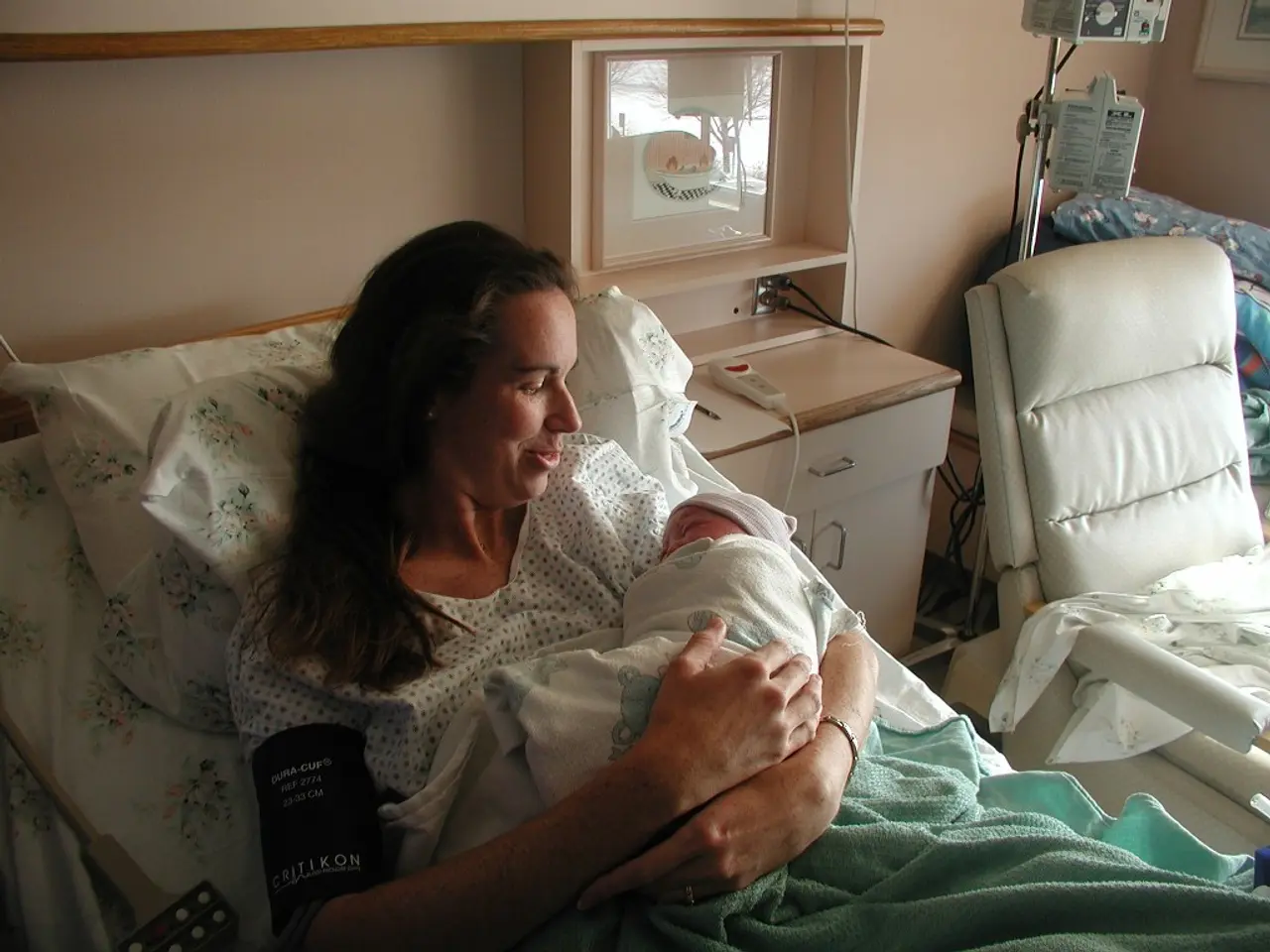Customary Newborn Care Practices in Nigeria Unveiled
In the vibrant and rich culture of Nigeria, newborn care is steeped in traditions that reflect the country's deep-rooted history and values. These practices, a beautiful blend of familial support, spiritual blessings, and natural remedies, nurture and protect newborns in unique and meaningful ways.
One such tradition is the practice of Omugwo, where the maternal grandmother moves in to help care for the mother and baby, including cooking and bathing the newborn. This close-knit support system is a testament to the importance of family in Nigerian culture.
Another distinct custom is the Yoruba naming ceremony called "Isomoloruko," held on the seventh or eighth day after birth. During this ritual, the baby is formally named, and prayers, family blessings, and symbolic items are used to convey wishes for the baby’s future.
Nigerian newborns are bathed using traditional techniques involving herbs and natural products, such as palm oil, believed to cleanse the baby's body and protect against spiritual impurities. Herbal remedies, like Shea butter or coconut oil, are also used to moisturize the baby's skin during bathing.
Superstitions and taboos play a significant role in newborn care, shaping the way families care for their infants and protect them from harm. For instance, the belief that the baby should not be bathed for the first few days after birth to protect against evil spirits is quite prevalent. Similarly, strangers are not allowed to hold or touch the newborn during their first month of life due to a taboo against allowing strangers to transfer negative energy or bring harm to the baby.
Preserving cultural heritage in child-rearing practices is of paramount importance, as it strengthens familial bonds and serves as a connection to the roots and identity of the Nigerian people. Breastfeeding is highly encouraged, with mothers believing that breast milk provides essential nutrients and builds the baby's immunity. Traditional practices, such as massaging the breasts or consuming special foods, are followed to promote lactation.
Embracing and respecting these traditions while adapting to modern practices ensures a balance between cultural heritage and progress in child-rearing. For example, baby-wearing, an age-old practice in Nigeria, offers numerous benefits for both the baby and caregiver, promoting bonding and keeping the baby secure and calm.
However, modernization and globalization have influenced some aspects of newborn care, with Western practices gaining popularity and often challenging traditional superstitions and taboos. This blend of old and new is a testament to the resilience and adaptability of Nigerian culture.
By honoring and adopting these traditions, parents contribute to the preservation and celebration of their cultural heritage, instilling a sense of pride and belonging in children. The evil eye, known as "ayo," is a widespread belief in Nigerian culture, with parents taking protective actions such as using charms or amulets to ward off negative energy and keep the evil eye away.
In conclusion, the unique newborn care traditions in Nigerian culture offer a fascinating glimpse into the country's rich history and values. These practices, a blend of familial support, spiritual blessings, and natural remedies, continue to play a significant role in nurturing and protecting newborns in Nigeria today.
- In Nigeria, breastfeeding is highly encouraged as mothers believe that breast milk provides essential nutrients and builds the baby's immunity.
- Omugwo, the practice where the maternal grandmother moves in to help care for the mother and baby, is a testament to the importance of family in Nigerian culture.
- Superstitions and taboos play a significant role in newborn care, with the belief that the baby should not be bathed for the first few days after birth to protect against evil spirits being quite prevalent.
- By using charms or amulets to ward off negative energy and keep the evil eye away, parents take protective actions in Nigerian culture.
- Embracing and respecting these traditions while adapting to modern practices ensures a balance between cultural heritage and progress in child-rearing.
- Yoruba naming ceremony called "Isomoloruko," held on the seventh or eighth day after birth, involves formal naming, prayers, family blessings, and symbolic items, reflecting the deep-rooted history and values of Nigerian culture.
- The practice of baby-wearing, an age-old process in Nigeria, offers numerous benefits for both the baby and caregiver, promoting bonding and keeping the baby secure and calm.




